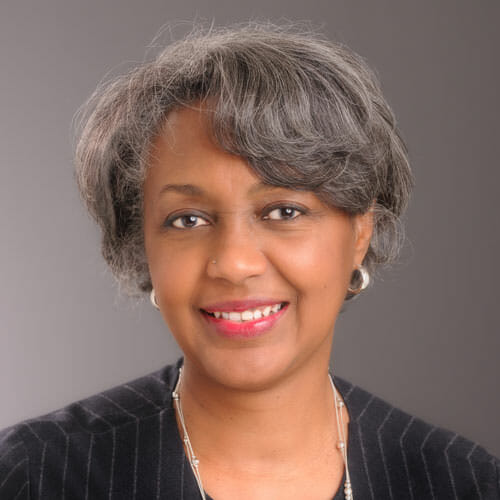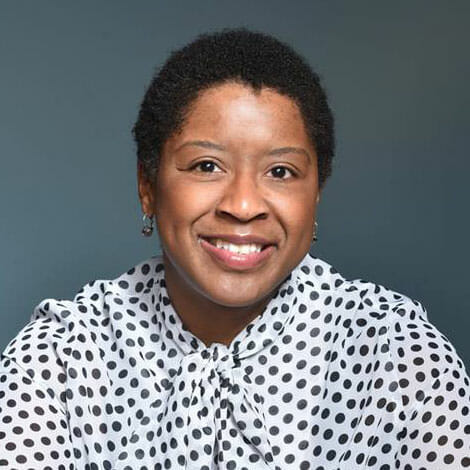Create a More Equitable Academic Search Process Using an Inclusion Advocates Program
Last updated March 18, 2021Course Length
1h 48m
Last Updated
March 18, 2021

Create a More Equitable Academic Search Process Using an Inclusion Advocates Program
Last updated March 18, 2021Table of Contents
Bring credibility and equity in your search process by identifying and training the right people to serve as inclusion advocates.
Overview
Academic search committees have a clear purpose to interview and hire the most qualified candidate for their vacant position. However, they also have the responsibility to ensure the search process is fair, inclusive, and equitable for all. Unfortunately, many search committees have not identified nor properly trained someone to serve as an inclusion advocate in order to help mitigate personal bias and maintain a credible process. Instead, BIPOC faculty are often asked to informally serve in these roles, which places undue responsibility on them to lead all inclusion efforts during the search process.
Join us online to learn about a program that helps ensure more accountability in your academic search process. This virtual event is designed to offer you tips and strategies to launch your own Inclusion Advocates program based on the successes instituted at Towson University. During the event, you will explore the following questions:
- How do I make a case for Inclusion Advocates at my institution?
- How do I identify and recruit the right mix of Inclusion Advocates for my campus?
- What are the critical professional development topics and resources that our Inclusion Advocates need to have to be effective in this role?
Academic search committees have a clear purpose to interview and hire the most qualified candidate for their vacant position. However, they also have the responsibility to ensure the search process is fair, inclusive, and equitable for all. Unfortunately, many search committees have not identified nor properly trained someone to serve as an inclusion advocate in order to help mitigate personal bias and maintain a credible process. Instead, BIPOC faculty are often asked to informally serve in these roles, which places undue responsibility on them to lead all inclusion efforts during the search process.
Join us online to learn about a program that helps ensure more accountability in your academic search process. This virtual event is designed to offer you tips and strategies to launch your own Inclusion Advocates program based on the successes instituted at Towson University. During the event, you will explore the following questions:
- How do I make a case for Inclusion Advocates at my institution?
- How do I identify and recruit the right mix of Inclusion Advocates for my campus?
- What are the critical professional development topics and resources that our Inclusion Advocates need to have to be effective in this role?
Who should attend?
Academic search committee chairs and other academic leaders, including provosts, deans, and department chairs, will benefit most from participating in this training, particularly if they are interested in implementing a process to identify, recruit, and train Inclusion Advocates.
Agenda
May 13, 2021
1:00 – 3:00 p.m. Eastern
You will be introduced to Towson University’s Inclusion Advocates model, adapted from Oregon State University. During this overview, you’ll discover what the program is, how it was implemented, and who is involved.
Our expert faculty will also spend time answering the following questions to learn the critical considerations in launching your own program:
Question #1: How do I make a case for Inclusion Advocates at my institution?
Learn how to:
- Gather and share data that demonstrates how this role is often informally actualized and disproportionately delegated to BIPOC faculty.
- Formalize diversity, equity, and inclusion (DEI) work by utilizing Inclusion Advocates’ lived experiences and professional skillsets that DEI relies upon to be successful.
- Demonstrate how having a formal process in place can mitigate reports of discriminatory search practices, including actual or perceived bias.
Question #2: How do I identify and recruit the right mix of Inclusion Advocates for my campus?
Discuss how to:
- Set the tone for the inaugural cohort who must be highly respected, have a demonstrated track record of equity and inclusion in their work, and foster inclusive communication strategies.
- Give voice and credibility to search committee decisions by selecting tenured or full professors to serve in this formal role.
- Share the workload and high demand for Inclusion Advocates during multiple search processes.
Question #3: What are the critical professional development topics and resources that Inclusion Advocates need to have to be effective in this role?
Walk away with tips for how to:
- Identify and discuss topics such as critical dialogue and accountability skills, multiple identities and intersectionality, equity and inclusive language, and hiring protocols, etc.
- Identify internal resources and instructors who already provide instruction on critical topics.
- Develop a first draft of your professional development or seminar-style structure.
$595



